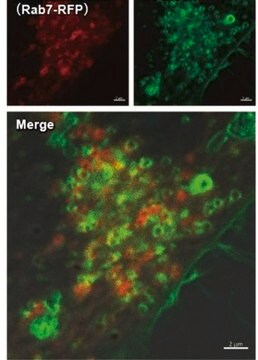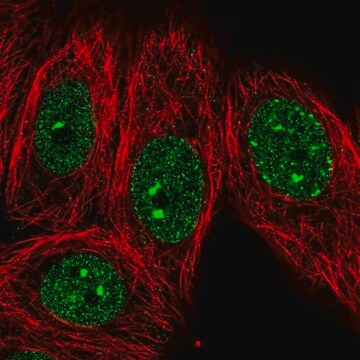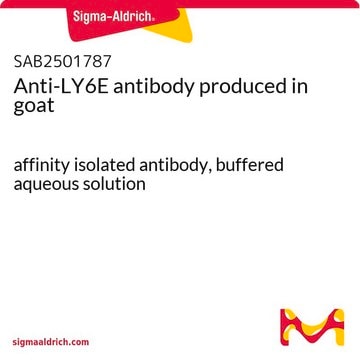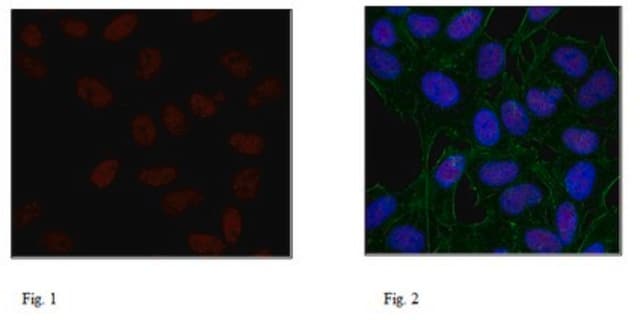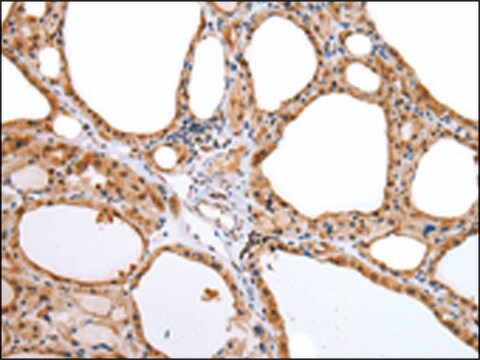07-2045
Anti-EHMT1 Antibody (CT)
from rabbit
Synonym(s):
G9a like protein, G9a-like protein 1, H3-K9-HMTase 5, Histone H3-K9 methyltransferase 5, Lysine N-methyltransferase 1D, euchromatic histone methyltransferase 1, euchromatic histone-lysine N-methyltransferase 1
About This Item
Recommended Products
biological source
rabbit
antibody product type
primary antibodies
clone
polyclonal
species reactivity
human
technique(s)
ELISA: suitable
immunocytochemistry: suitable
western blot: suitable
NCBI accession no.
UniProt accession no.
shipped in
wet ice
target post-translational modification
unmodified
Gene Information
human ... EHMT1(79813)
General description
Specificity
Immunogen
Application
Epigenetics & Nuclear Function
Histone Modifying Proteins
Chromatin Biology
This antibody is reported by an outside laboratory to be suitable for Western blotting using EHMT1-transfected 293 cells.
ELISA:
This antibody is reported by an outside laboratory to be suitable for ELISA.
Quality
The antibody detects EHMT1 in HeLa cell nuclei.
Target description
Physical form
Storage and Stability
Handling Recommendations: Upon receipt, and prior to removing the cap, centrifuge the vial to pellet the solution. Avoid repeated freeze/thaw cycles, which may damage IgG and affect product performance.
Analysis Note
HeLa cells
Other Notes
Disclaimer
Not finding the right product?
Try our Product Selector Tool.
Storage Class Code
10 - Combustible liquids
WGK
WGK 2
Flash Point(F)
Not applicable
Flash Point(C)
Not applicable
Certificates of Analysis (COA)
Search for Certificates of Analysis (COA) by entering the products Lot/Batch Number. Lot and Batch Numbers can be found on a product’s label following the words ‘Lot’ or ‘Batch’.
Already Own This Product?
Find documentation for the products that you have recently purchased in the Document Library.
Our team of scientists has experience in all areas of research including Life Science, Material Science, Chemical Synthesis, Chromatography, Analytical and many others.
Contact Technical Service
